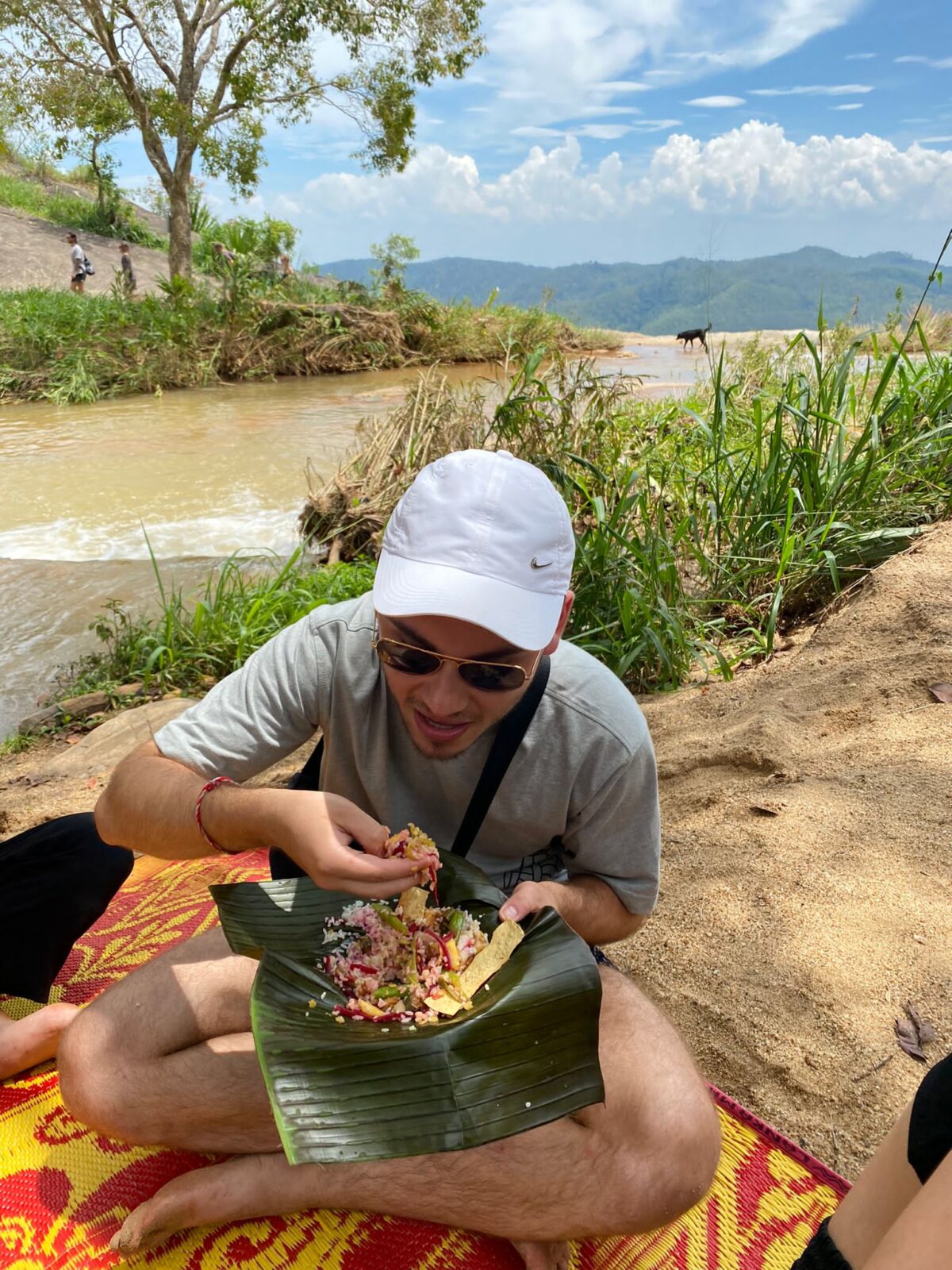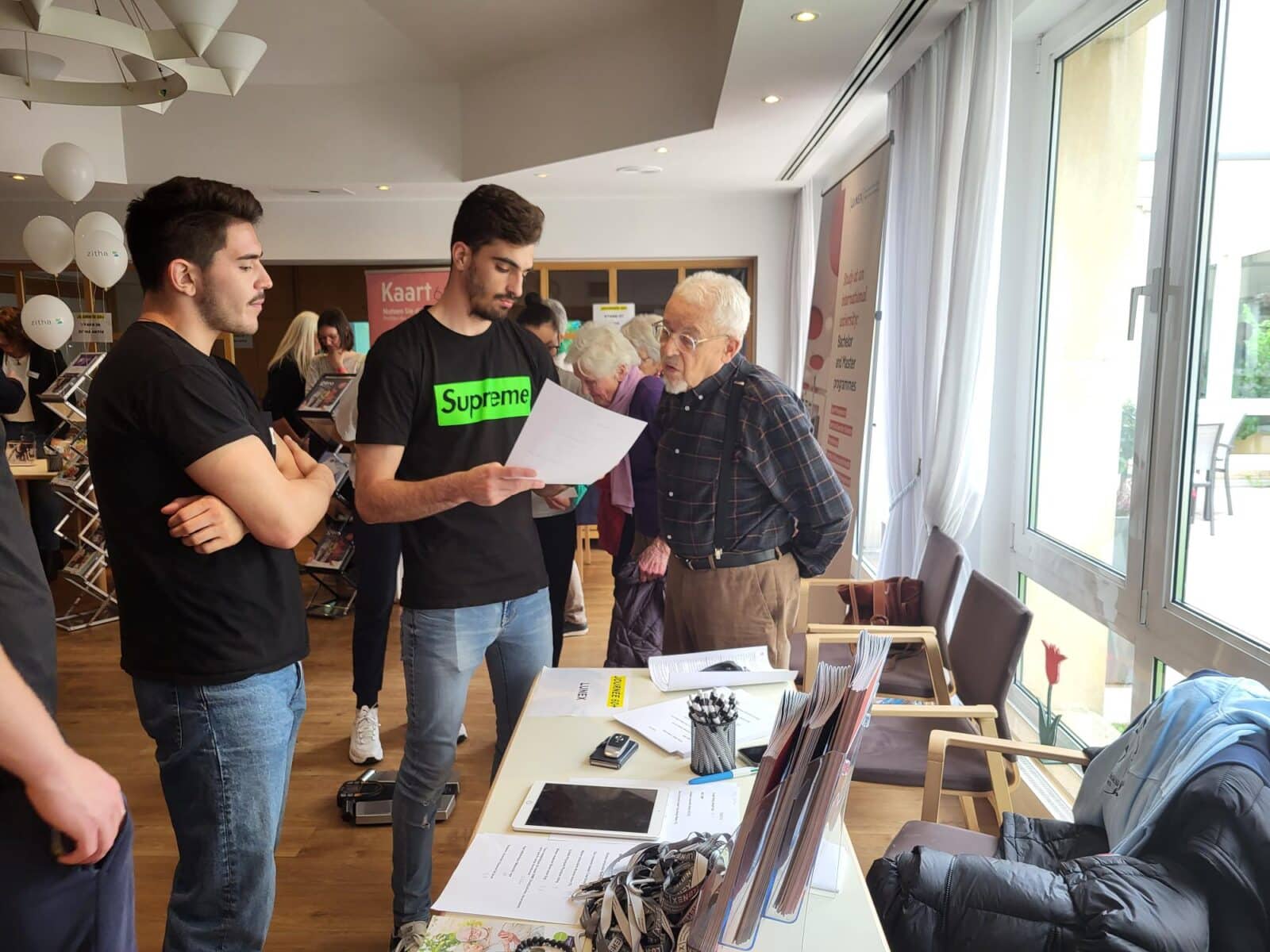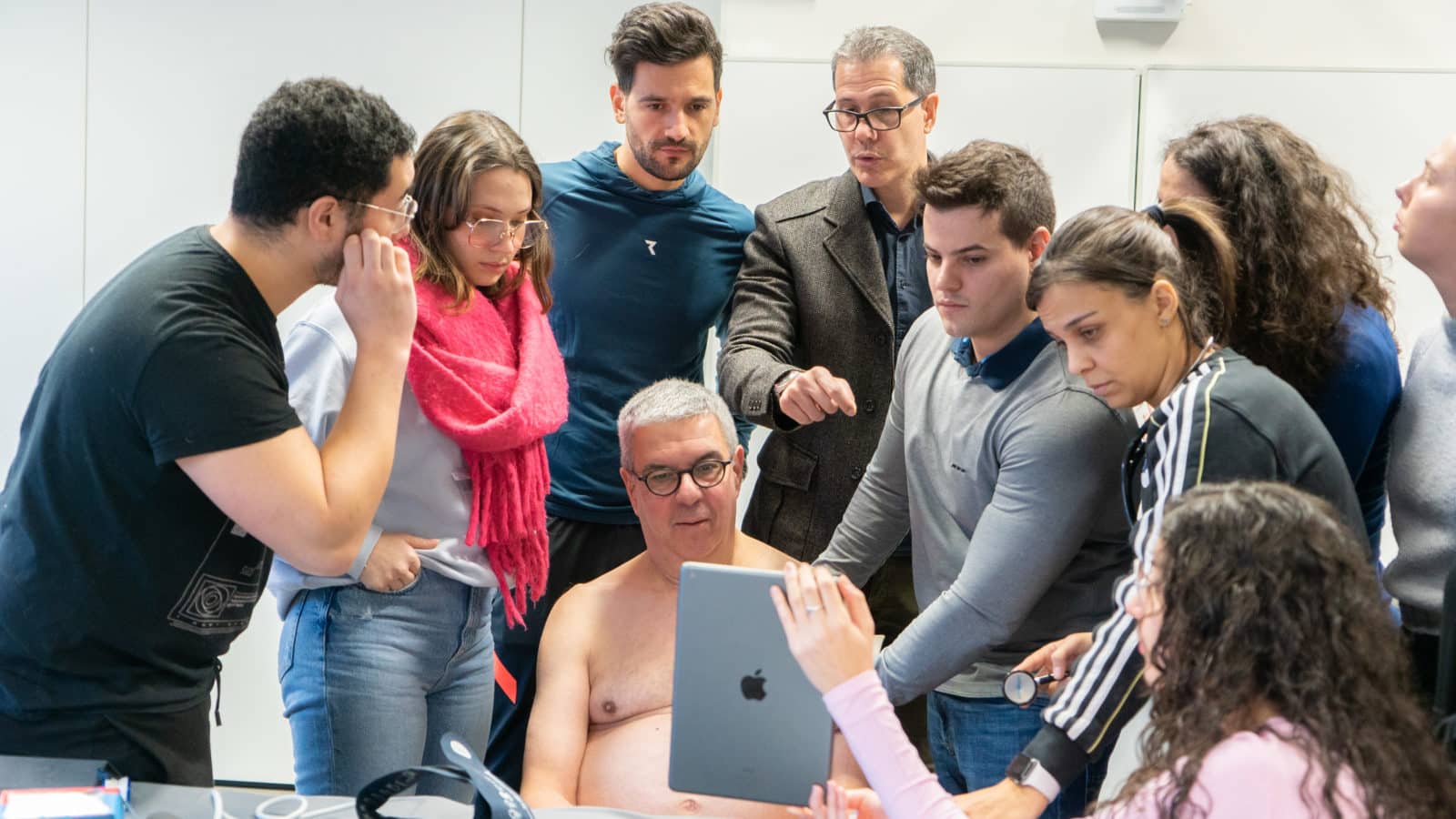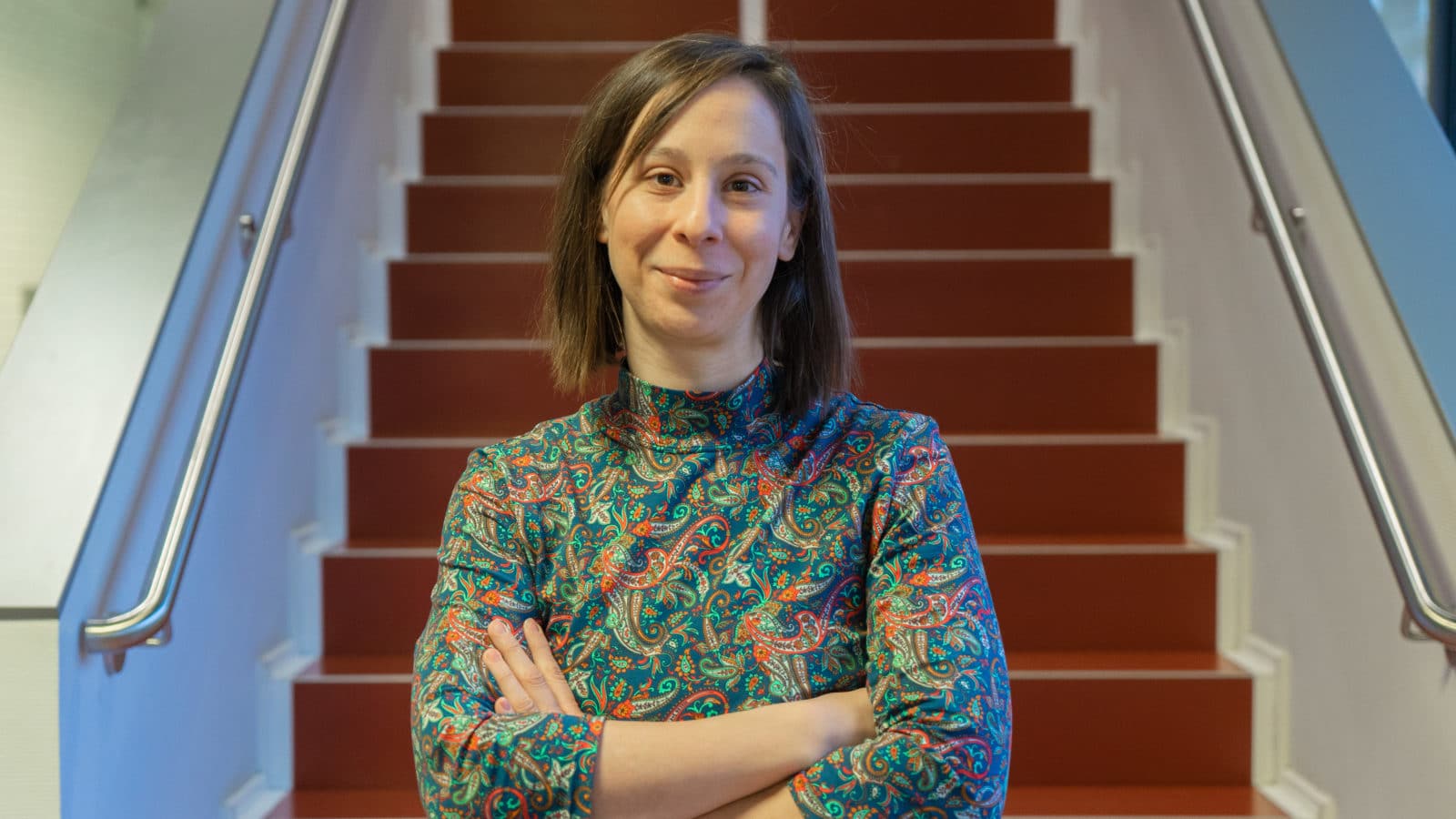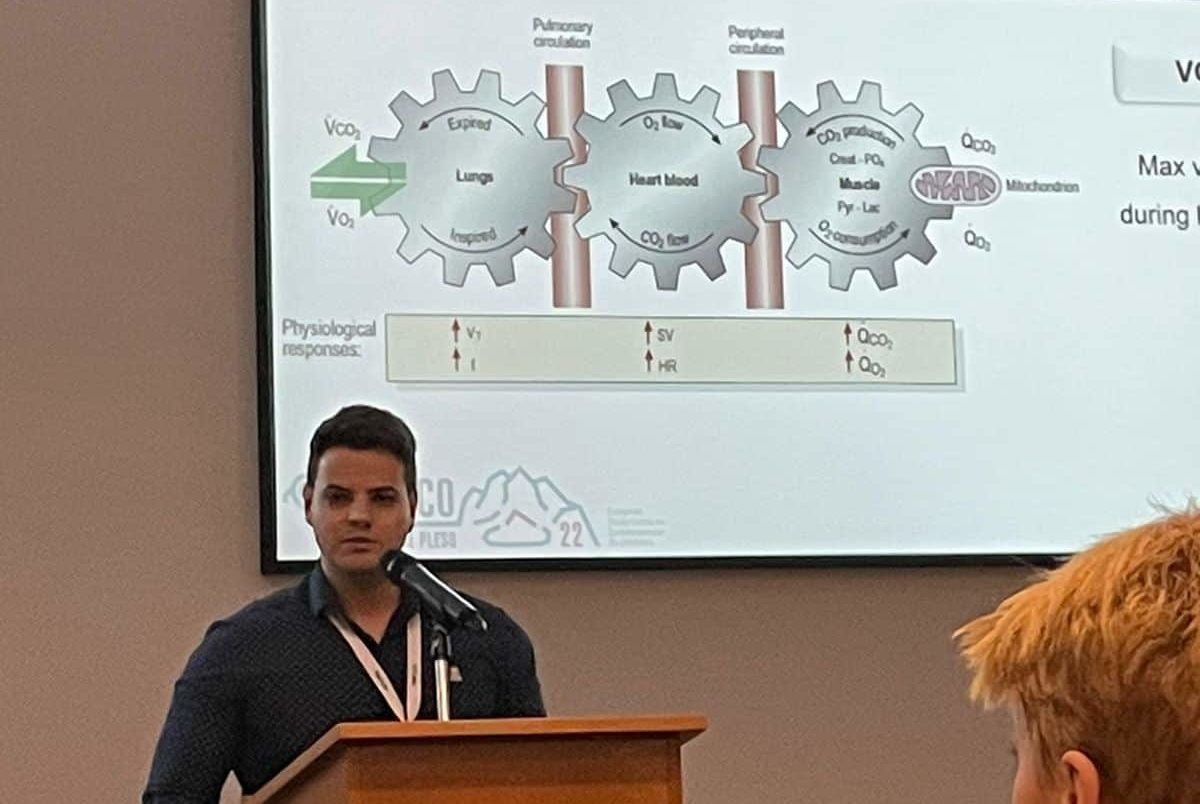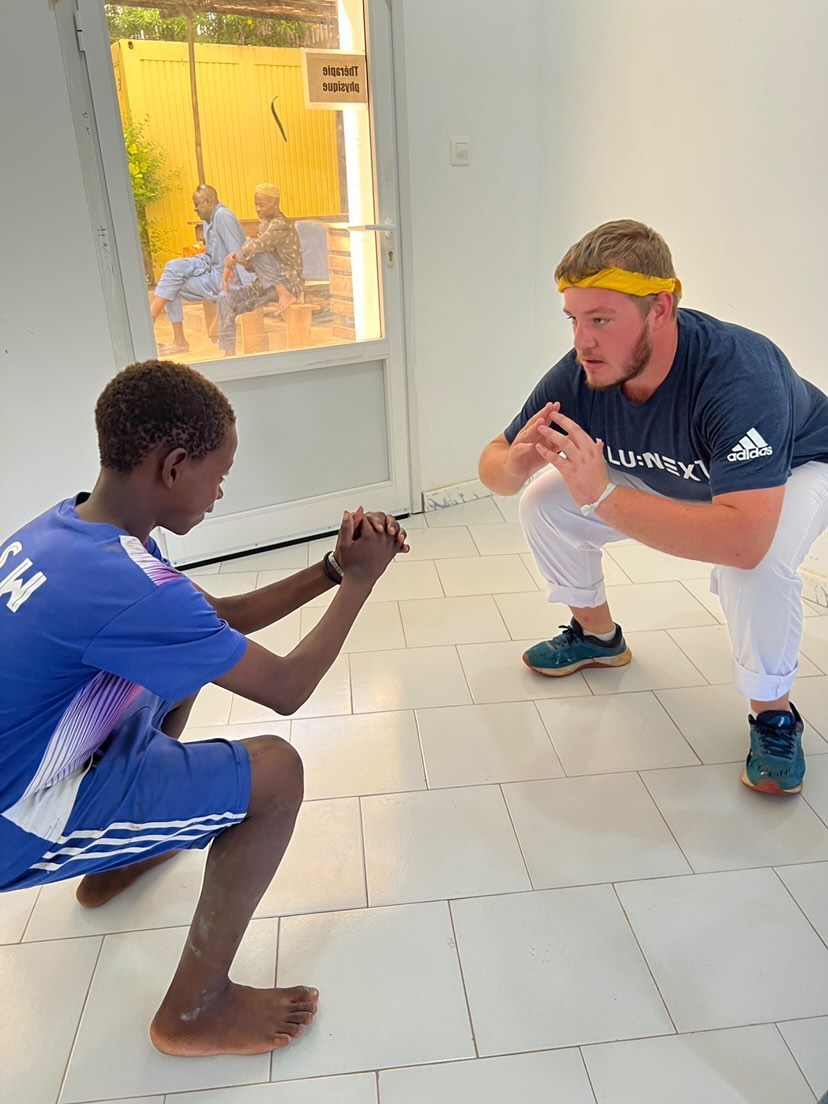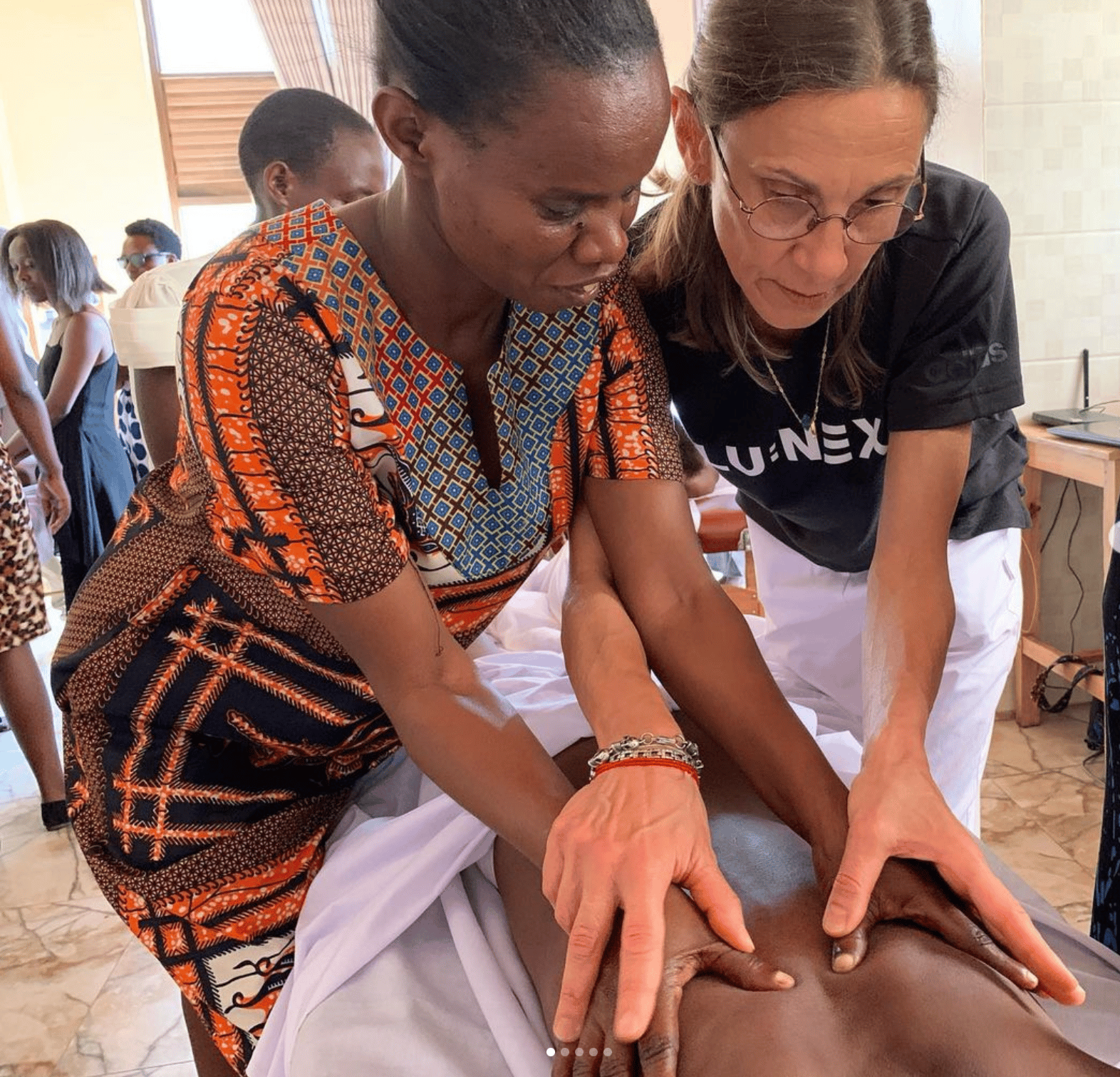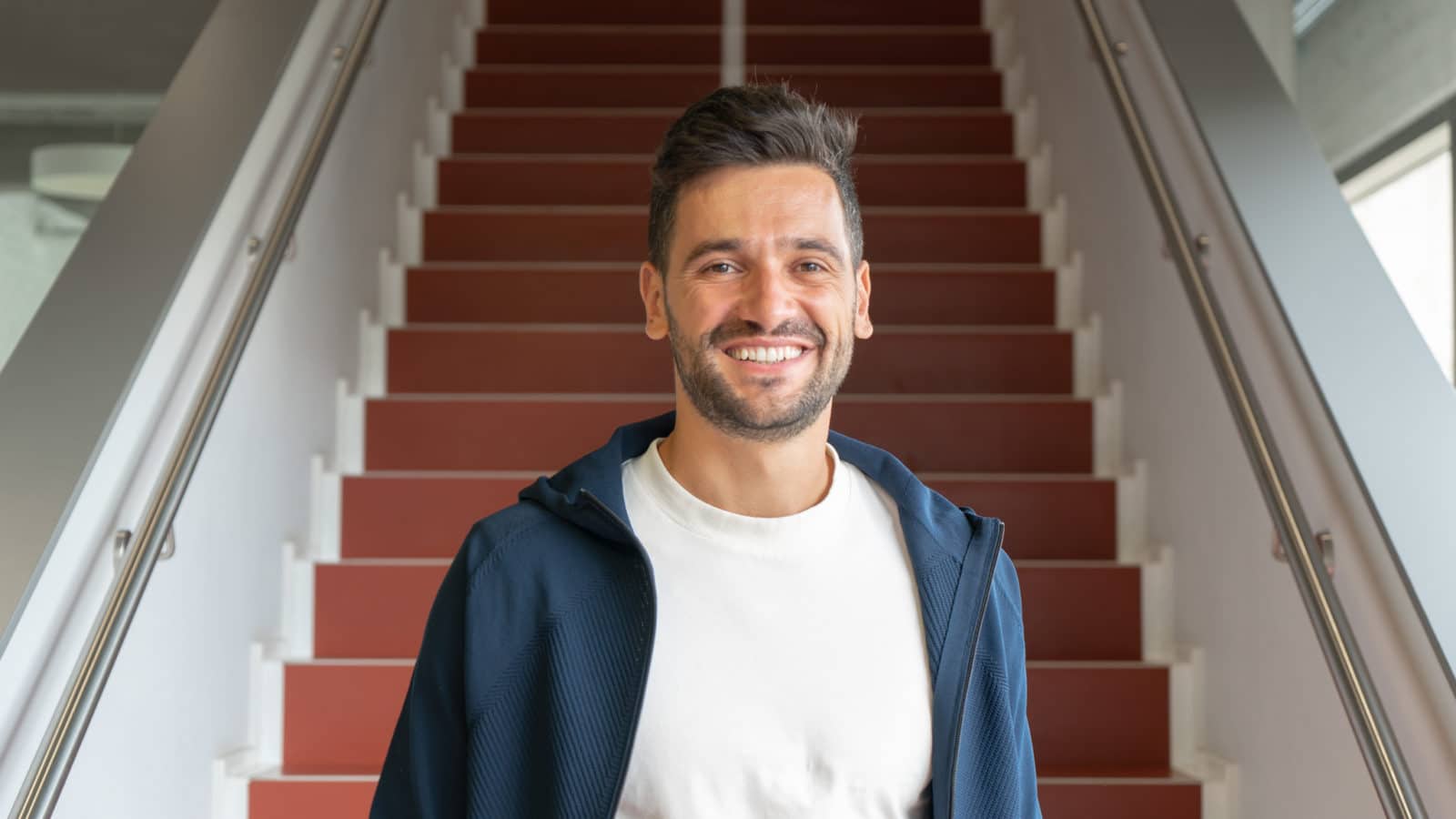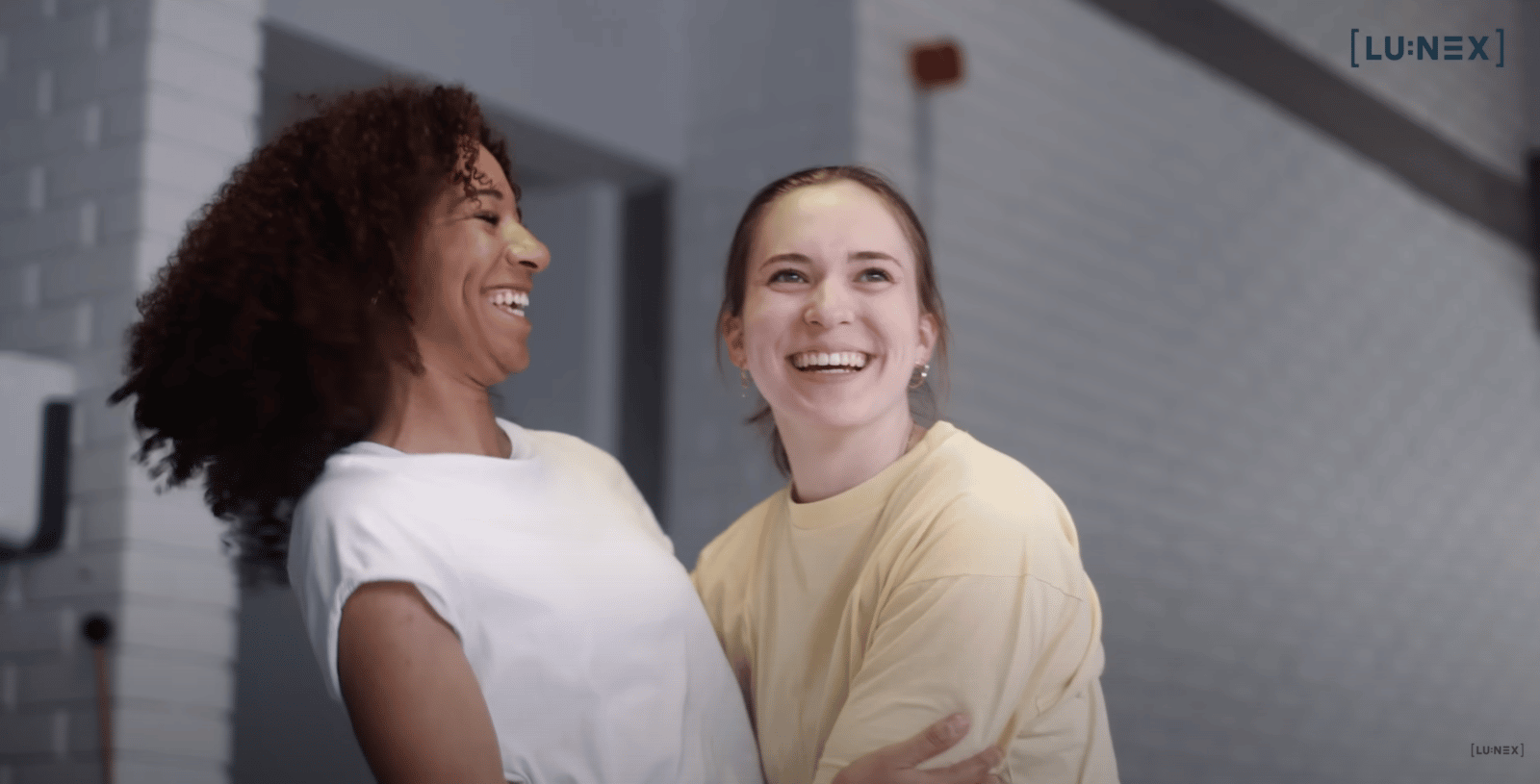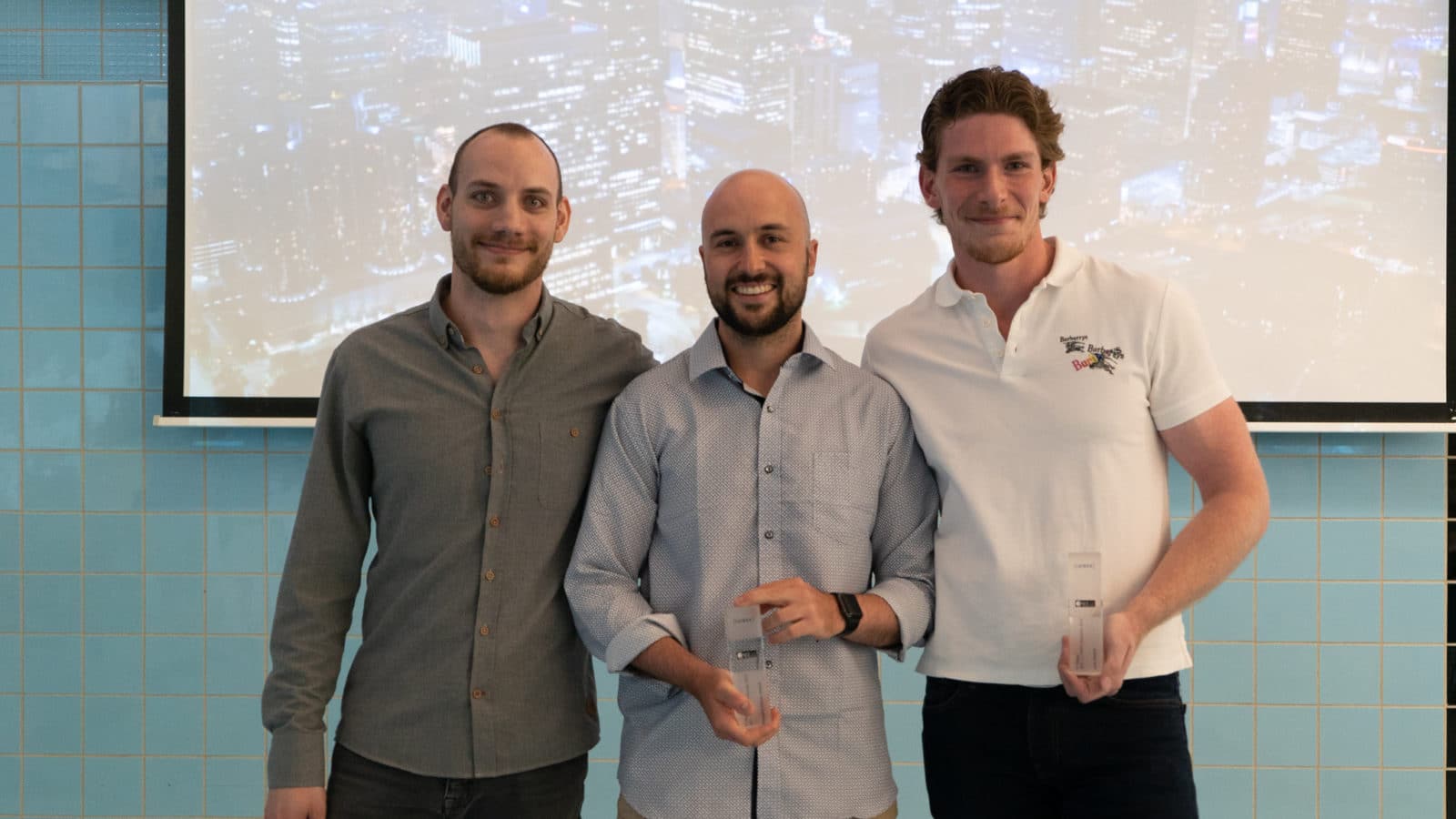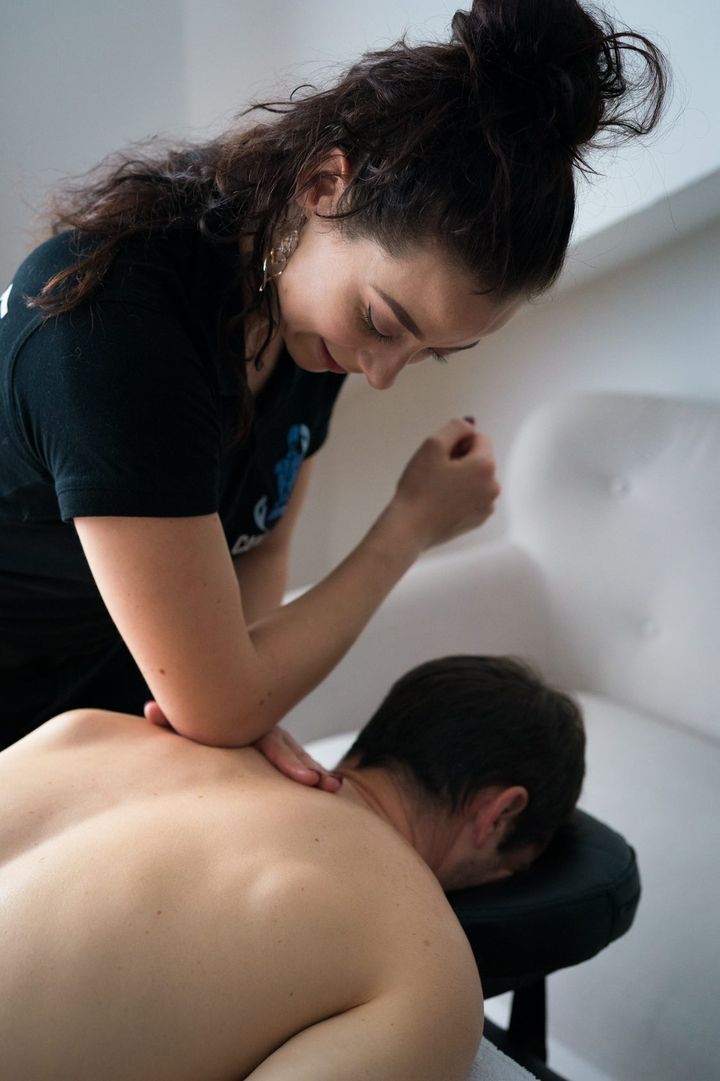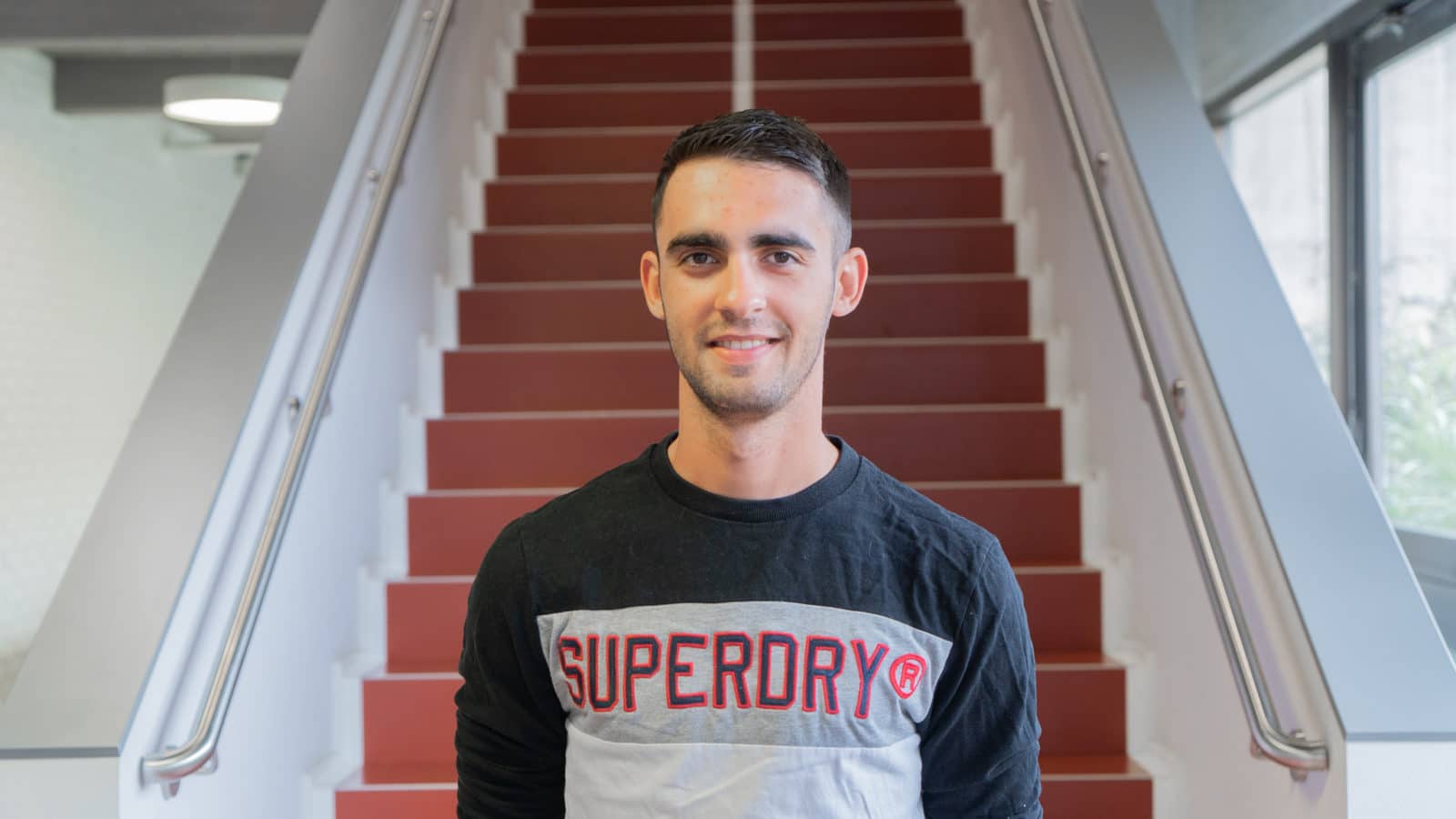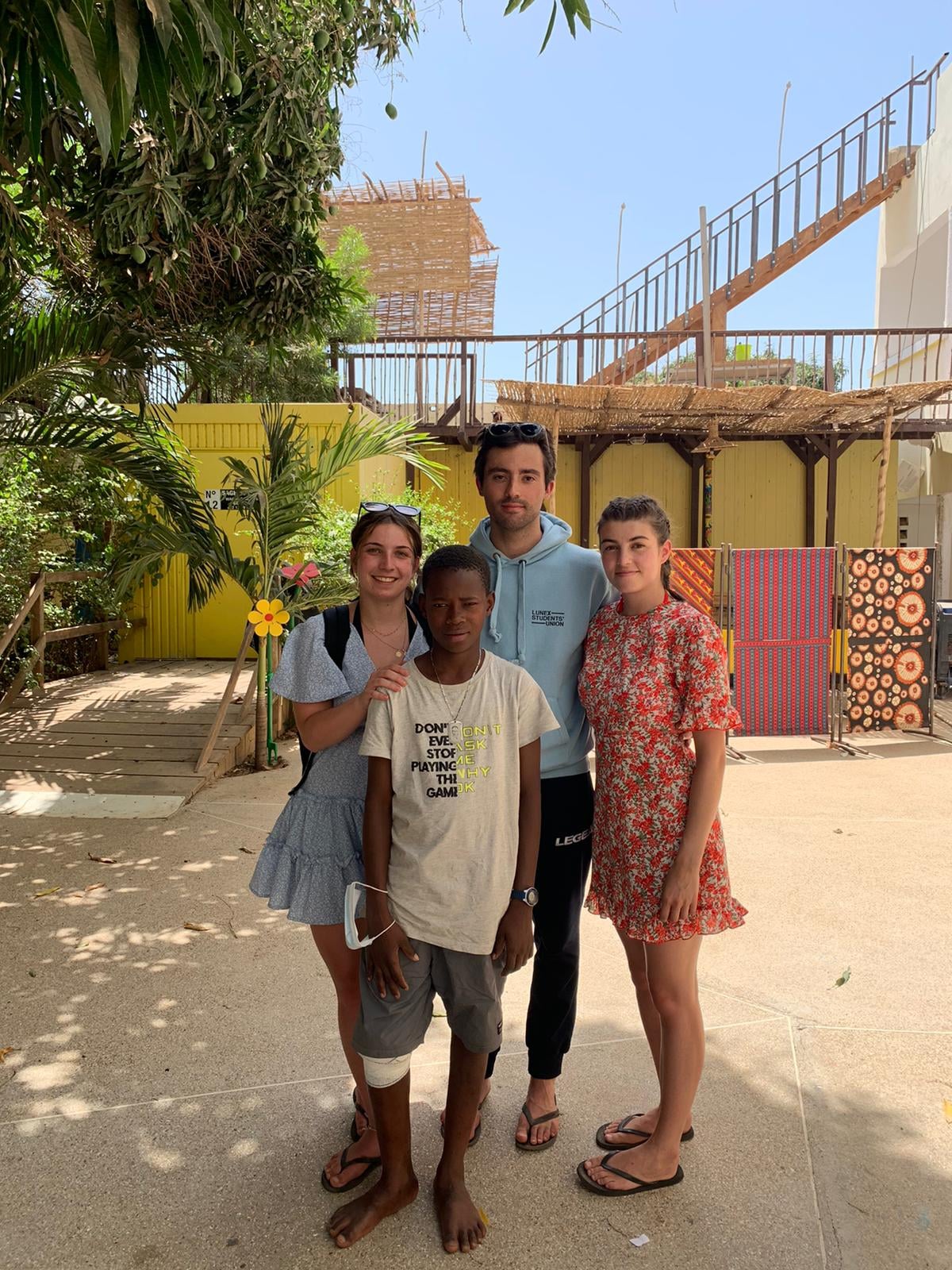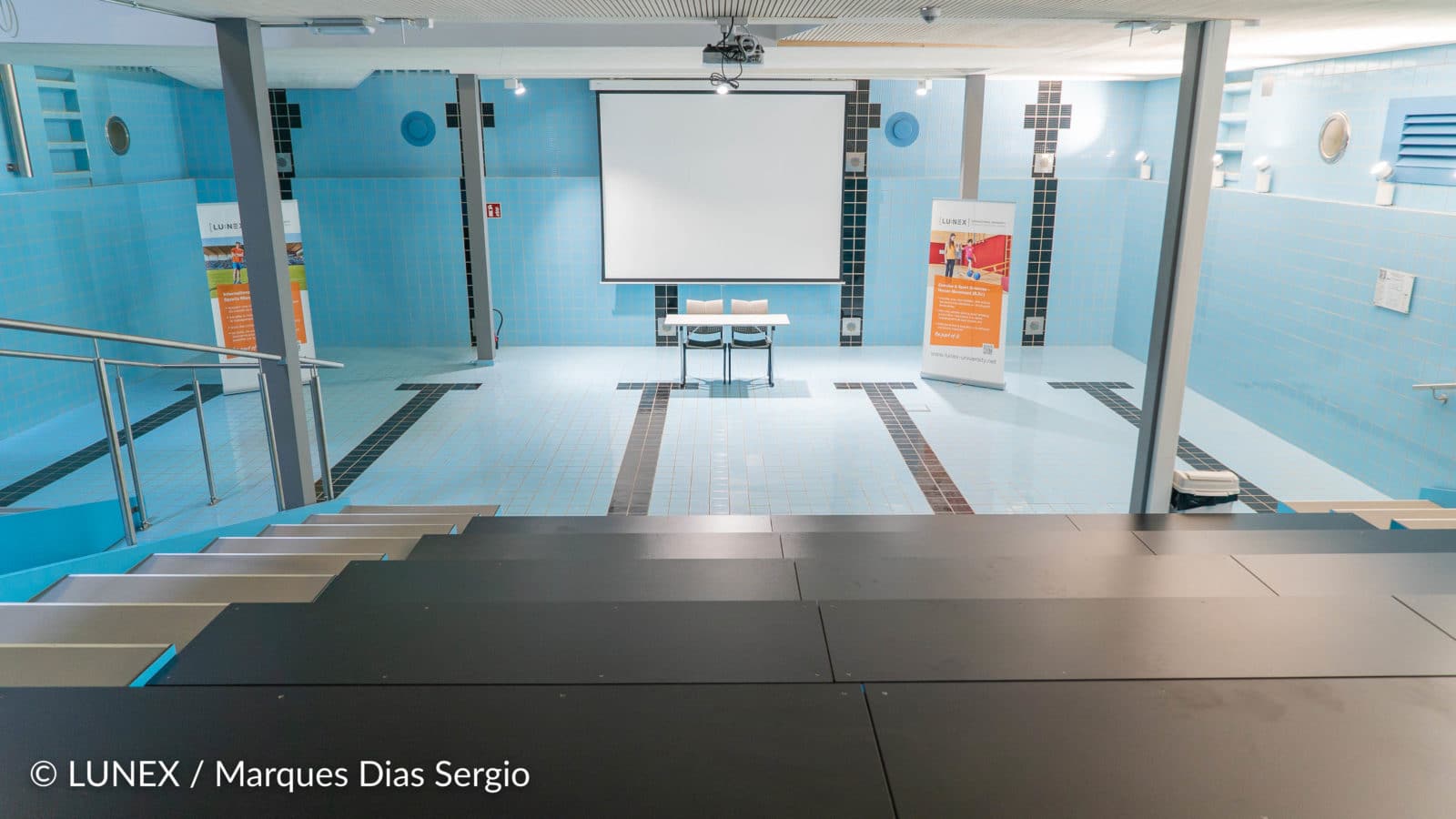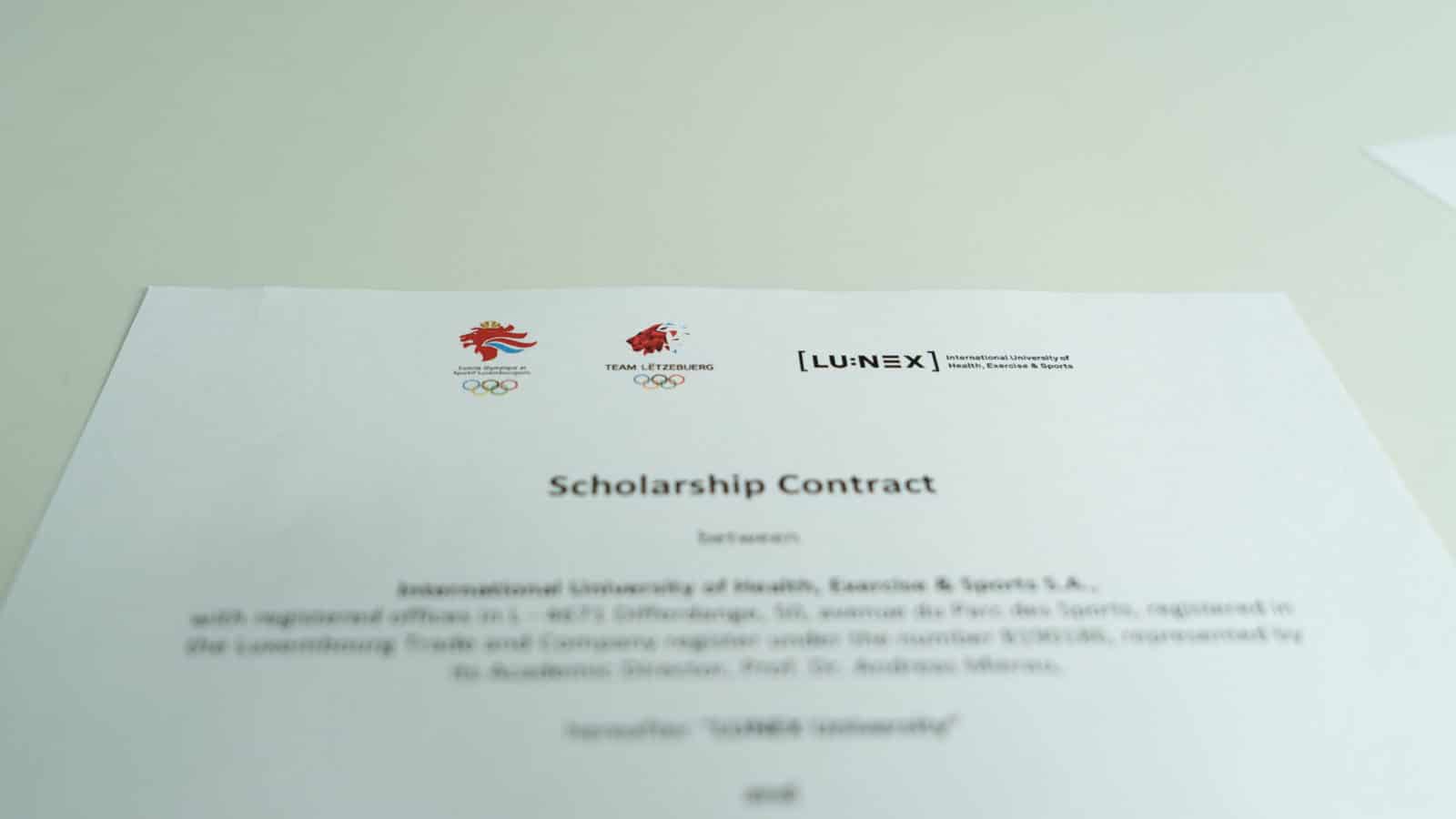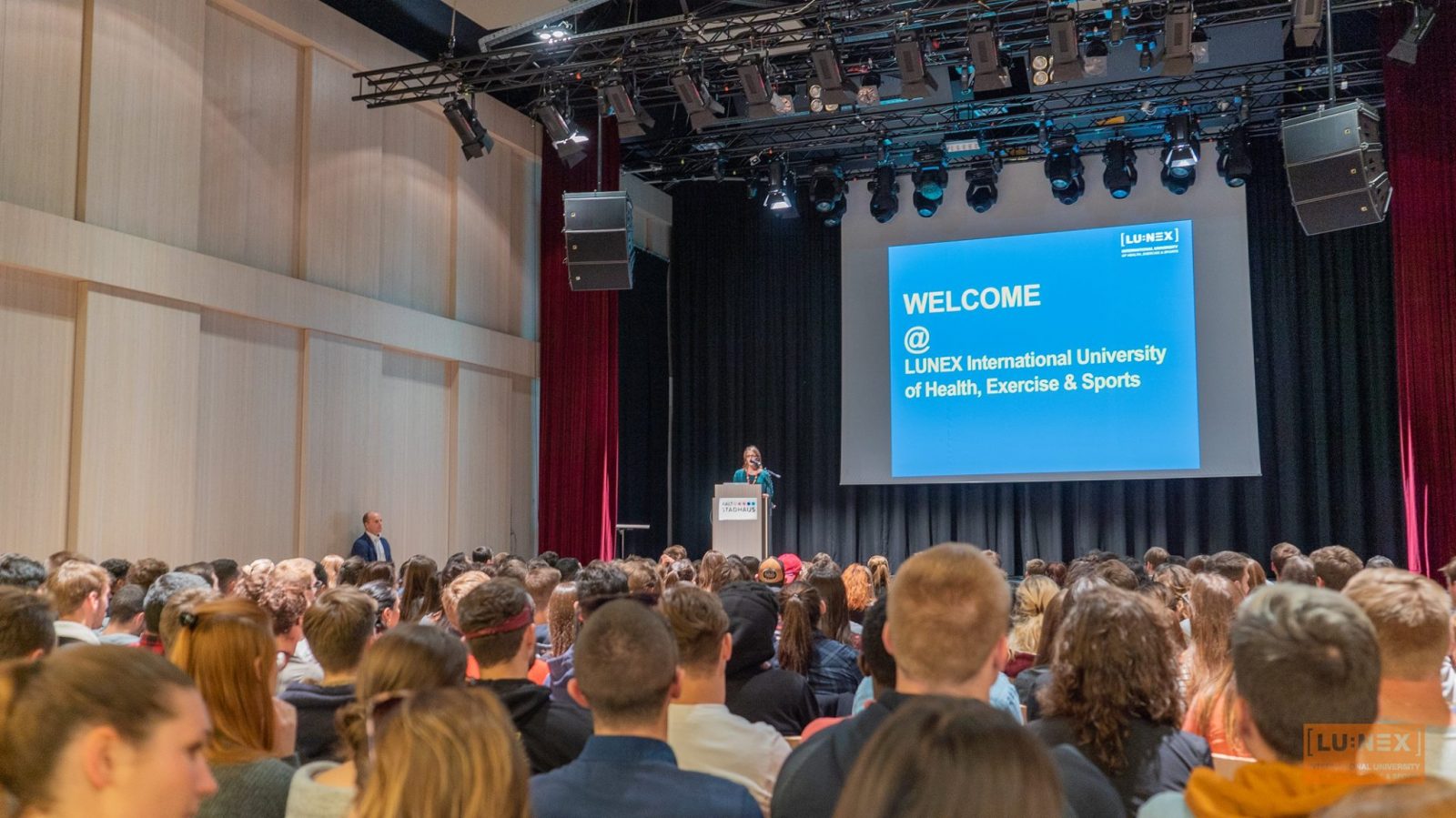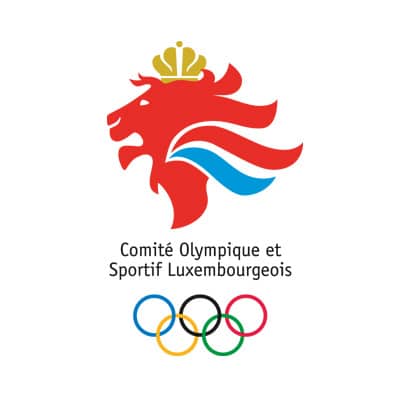Knowledge creates movement:
The bachelor’s programme in Physiotherapy
Physiotherapy is an autonomous and very dynamic health profession. Modern developments in the healthcare sector place high demands on the qualifications of prospective physiotherapists. The physiotherapy studies at LUNEX set high educational standards so that you can master these challenges with scientifically sound and practice-oriented specialist knowledge.
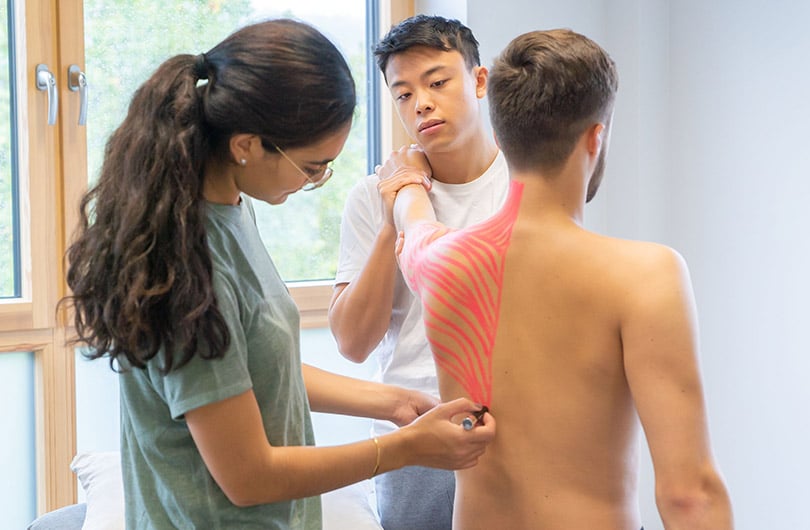
Our bachelor’s programme in physiotherapy offers you a sound, practice-oriented academic qualification that prepares you for your future tasks. You will acquire the technical basics of physiotherapy: anatomy, physiology, pathology, kinesiology as well as the application of various physiotherapeutic assessment and treatment methods.
Due to the English-language course structure, you acquire additional subject-specific language skills for the best career opportunities in your chosen profession, even in an international environment. If your English language skills are not yet sufficient to study physiotherapy in English (B2 level or higher), we will prepare you optimally for the study in our Pre-Bachelor Foundation Programme. As soon as you have successfully completed the Pre-Bachelor Foundation Programme, you have the best prerequisites for a successful bachelor’s degree at LUNEX and you will immediately start studying physiotherapy.
Following the Bachelor, our Master in Physiotherapy is your chance to continue towards your goal. Here you will expand your clinical and scientific knowledge in various areas of physiotherapy and develop a self-reflective practice in the sense of clinical reasoning. After completing your master’s degree you will have the necessary qualifications to become a licensed physiotherapist.
Your training plan:
What you can expect in the Bachelor in Physiotherapy
During the bachelor’s degree programme, you will acquire the theoretical and practical basics for the physiotherapy profession. This includes sound knowledge of the structure and functions of the human musculoskeletal, cardio-respiratory and nervous systems and skills in dealing with patients. You will learn to practice physiotherapeutic examination and treatment methods in a patient-oriented manner and to reflect and justify your actions scientifically.
Bones, muscles, joints and more – as a prospective physiotherapist you will deal intensively with all the aspects of the human movement system. At the beginning of your studies we will give you a basic understanding of the structure and functions of the human body, both in a healthy and diseased state. You will acquire extensive knowledge in the fields of anatomy, physiology and pathology.
The course will also cover basic aspects of motor control and motor learning, as well as assessment and treatment techniques. Building on this, you will learn to apply scientifically sound treatment methods in a targeted manner. We attach great importance to the teaching of evidence-based practice. You will learn to analyse scientific data and assess their quality and to apply evidence-based examination methods and measuring instruments for clinical practice and research.
Course of study
1st year
In the first year you will learn the basic scientific knowledge that is essential for working as a physiotherapist. You will start by learning specific study skills to improve your existing learning strategies, before being taught relevant psychology and communication strategies to address and interact with your patients. Afterwards, the anatomy, physiology and pathology topics will provide you all you need to know about the structures and functions of the systems of your body, particularly those involved in human movement. During this first year we will also teach you key skills in physiotherapy.
2nd year
The second year is dedicated to developing your assessment, diagnostic and intervention skills in an integrated way. This means that teaching will incorporate clinical case scenarios where you will learn all the pathophysiological, assessment and intervention aspects related to a certain injury or disease. Thus, the majority of the modules will be practical, with evidence-based practice, across the three main areas of physiotherapy: musculoskeletal, cardio-respiratory, and neurological. This will allow you to establish and implement treatment plans based on the most up-to-date evidence in physiotherapy. In addition, you will develop your research methods skills.
3rd year
The third academic year is dedicated to practice. You will expand your knowledge to include selected topics in internal medicine and geriatrics. You will put your acquired knowledge and skills to practical use in a total of three internships. For seven to eight weeks at a time you will work in renowned physiotherapy practices, rehabilitation centres and clinics in various medical fields. At the end of your studies you will write your bachelor thesis.
Curriculum
Module
ECTs
Foundations for successful Study and Practice
5
Research and Evidence in Physiotherapy I
5
Scientific Foundations
9
Musculoskeletal Anatomy and Physiology
11
30
Module
ECTs
Key Skills in Physiotherapy
10
Organ Systems Anatomy, Physiology, Pathology
10
Human Movement Sciences
10
30
Module
ECTs
Pathology and Assessment in Musculoskeletal Physiotherapy
10
Principles and Approaches in Cardio-respiratory Physiotherapy
10
Neuroanatomy, Neurophysiology and Neuropathology
10
30
Module
ECTs
Principles and Approaches in Musculoskeletal Physiotherapy
10
Research and Evidence in Physiotherapy II
5
Physiotherapy through the Life Course I
5
Principles and Approaches in Neuro-Physiotherapy
10
30
Module
ECTs
Physiotherapy through the Life Course II
6
Clinical Placement I
18
Clinical Placement II.I
6
30
Module
ECTs
Clinical Placement II.II
6
Clinical Placement III
12
Bachelor’s Thesis
12
30
The final step:
Career & perspectives
With your bachelor’s degree, you have successfully completed the first stage on your way to becoming an academically trained physiotherapist. The subsequent master’s programme will lead you to the goal of professional admission as a recognised physiotherapist. The perfect combination of bachelor’s and master’s studies opens up a wide range of opportunities for you.
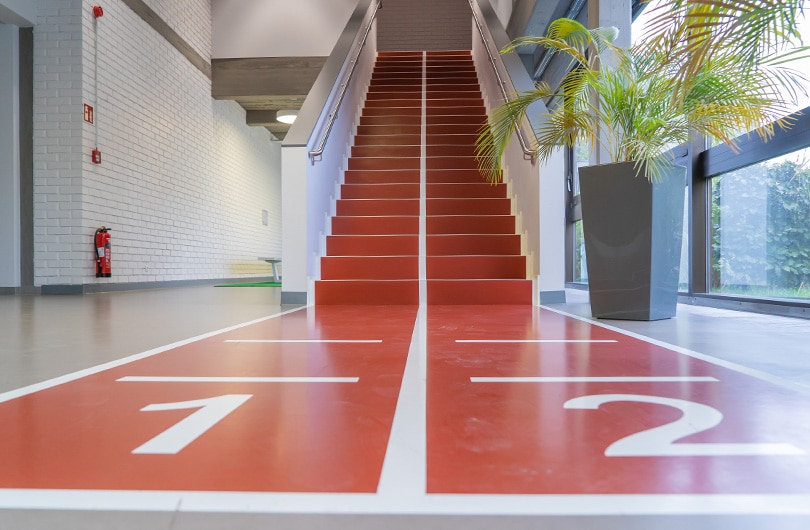
Career pathways
To practice as a physiotherapist, you must have completed a Master in Physiotherapy. Nevertheless, the health and social sector offers a wide range of job opportunities for which the knowledge you acquired with your Bachelor in Physiotherapy is highly valued. Potential employers where a licence as physiotherapist is not mandatory are:
- Health offices and authorities
- Health insurance companies
- Healthcare suppliers
- Medical publishers
- International companies
- Sports clubs and associations
- Science and research
Due to demographic changes and medical progress, the healthcare sector is constantly evolving. In an ageing society with growing health awareness, well-trained health professionals are becoming increasingly important. To actively shape your future, it is particularly important that you are well prepared for the coming changes. At LUNEX you lay the foundation for a promising career.
As a graduate of the bachelor degree, you have an excellent basis for further deepening your knowledge. Our Master in Physiotherapy is the logical next step. Here you not only acquire advanced knowledge of physiotherapeutic practice, science and research, but also strengthen your skills in patient care. A key element: Upon completion of the master's programme, you meet the requirements to apply for professional admission as a physiotherapist.
Your equipment:
What you will need to bring with you
Would you like to actively support the health and well-being of other people? Do you enjoy exercise and sport? Do you find it easy to get in touch with people and to put yourself in their shoes? Great, then you already have some of the most important qualities for the physiotherapy bachelor’s degree.
Admission requirements
- University entrance qualification or equivalent qualification
- English Language Skills B2 Level (CEFR)
On your marks, get set, go:
How to apply
Ready to get started? Applying to LUNEX is easy and possible at any time of the year. It only takes three steps to start your studies. We’ll show you just how the application works.
You can apply online at any time. Just fill out our Online Application Form.
After receiving your online application for one of our study programmes, we will invite you to one of our Application Days. Based on the test results achieved there, we will decide whether you will be admitted directly to the course of study or whether you should first participate in our Pre-Bachelor Foundation Programme to complete and expand your knowledge.
Have you successfully participated in one of our our Application Days? Great, then you have now completed your application! You will receive your study contract from us by e-mail. Please print it out, sign it and send it by post or email to LUNEX together with the relevant documents listed in the e-mail.
Please be aware that your previous diplomas may require a recognition with Luxembourg authorities.
LUNEX Student Recruitment will help you throughout this process.
Passionate professionals:
The Team Physiotherapy
“At LUNEX, we aim at excellence in physiotherapy education and research, to keep up to date with changes in the healthcare environment.To our students we offer high quality educational programmes, delivered by experts, in a dynamic and multicultural environment. Our mission is to provide the best education to empower the next generation of physiotherapists, preparing professionals that are ready to face the future challenges and to make exceptional contributions to their fields.”
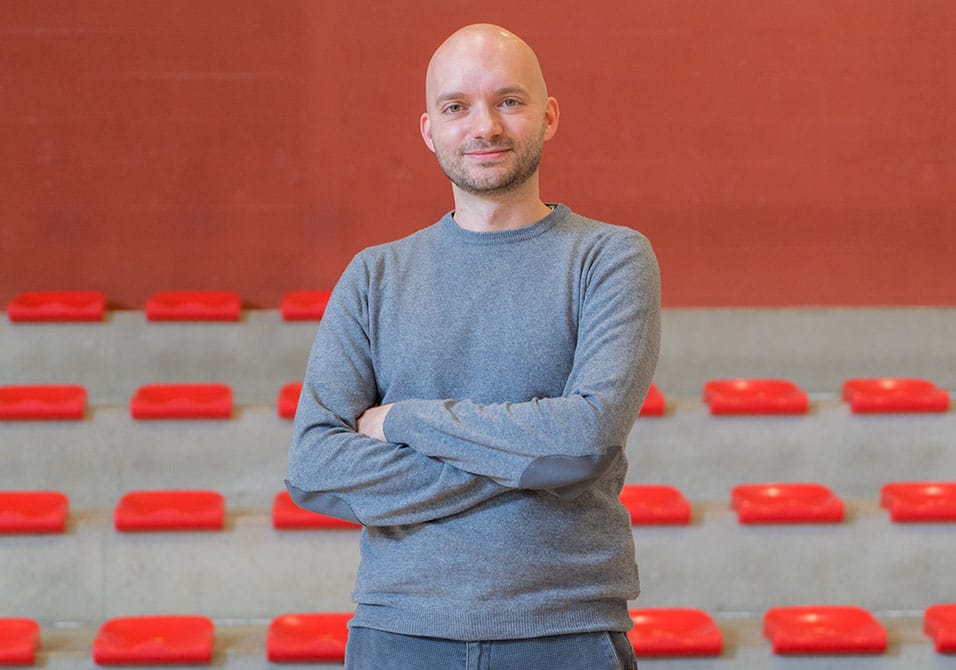
What’s happening:
Latest news from the Physiotherapy Department
Any questions?
Contact us
We look forward to hearing from you and will be happy to provide answers to your questions about LUNEX and our study programmes:
E-mail: study@lunex.lu
Phone: +352 288 494-40



